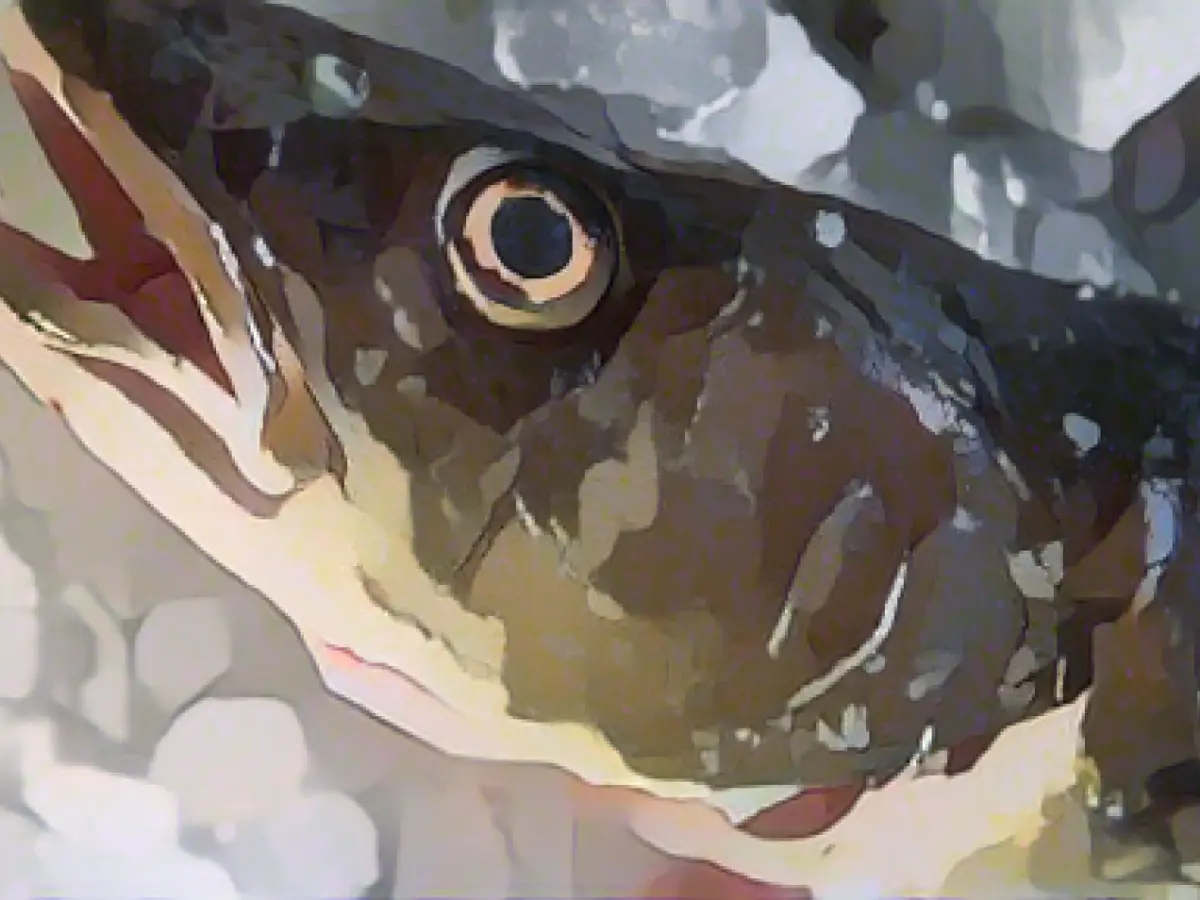Fishing ban - No cod fishing from 2024: Effect on stock doubtful
According to experts, the ban on fishing for cod in the Baltic Sea, which will also apply to recreational anglers from January 1, will no longer have a significant impact on the stock. In comparison to natural mortality due to environmental influences, the fishing factor has recently been low overall, fisheries expert Christopher Zimmermann told the German Press Agency.
The EU member states had decided that anglers would no longer be allowed to fish for cod in the Baltic Sea from January 1. Previously, one cod per day had been permitted. Even professional fishermen will only be allowed to land cod as by-catch. Alongside herring, cod has long been one of the most important species for the local fishery. Fishing, but also the warming of the Baltic Sea and overloading with nutrients from agriculture, for example, have severely affected the stocks. In contrast to herring, there have been no signs of improvement for cod recently.
"The fishing ban is of course significant for anglers, because it wasn't so long ago that cod was by far the most important target species, especially in the western Baltic Sea," said Zimmermann, who heads the Thünen Institute of Baltic Sea Fisheries in Rostock. The decision will accelerate the disappearance of the fishing cutters. Due to the low impact, the restriction to one cod per day could have been maintained in the view of his institute. However, a fishing ban would have been easier to implement than other measures, such as the changes to maximum and minimum sizes proposed by angling associations.
The anglers' association in Mecklenburg-Western Pomerania is also aware of the problems facing the cod stock. "In fact, many anglers report and we ourselves experience that it is difficult to get a cod on the hook anyway," said a spokeswoman. "If a cod is actually hooked, it's a shame not to be allowed to take this tasty fish with you." It remains to be seen how big an impact the ban will actually have on recreational fishing in and on the Baltic Sea. Currently, flatfish fishing is a worthwhile substitute. Other seasonal fish species include garfish, herring and mackerel.
Experts suspect that too warm water at the surface and too little oxygen at depth are affecting the cod's development. Researchers are also planning a large-scale study to investigate the effects of the increasing numbers of cormorants on the cod population in the western Baltic Sea. Zimmermann is not very optimistic for the foreseeable future: "Unfortunately, the miserable state of the cod stocks is unlikely to change."
Read also:
- A clan member is punished here
- Traffic lawyer warns: Don't talk to the police!
- Will he be convicted as Jutta's murderer after 37 years?
- He also wanted to kill his cousin
- Christopher Zimmermann, the head of the Thünen Institute of Baltic Sea Fisheries in Rostock, expresses his thoughts on the fishing ban for cod in the Baltic Sea to the German Press Agency.
- The EU member states have decided to implement a fishing ban for cod in the Baltic Sea from January 1, effectively preventing recreational anglers from catching cod and limiting professional fishermen to catching cod as by-catch.
- The fishing ban has the potential to accelerate the disappearance of fishing cutters, as one of the most important species for local fishery, cod, has been affected by factors such as fishing, warming of the Baltic Sea, and overloading with nutrients.
- The anglers' association in Mecklenburg-Western Pomerania acknowledges the difficulties facing the cod stock and expresses concern over the ban's impact on recreational fishing, noting that flatfish fishing and other seasonal fish species like garfish and herring are currently viable alternatives.
- Researchers are planning a large-scale study to investigate the effects of increasing numbers of cormorants on the cod population in the western Baltic Sea, as experts suspect that poor cod development may be linked to warm water at the surface and insufficient oxygen at depth.
- Fisheries expert Christopher Zimmermann remains pessimistic about the future of cod stocks, expressing uncertainty that the miserable state of the cod population will improve in the near future.
Source: www.stern.de








